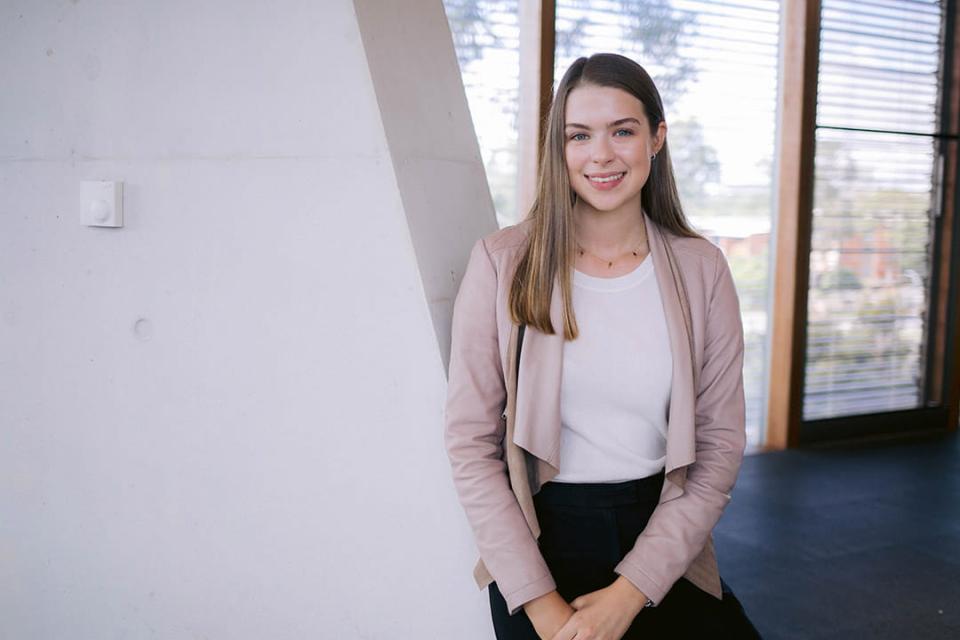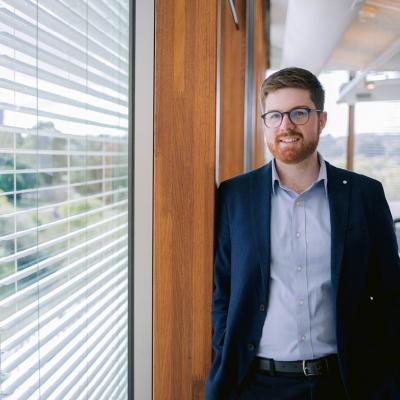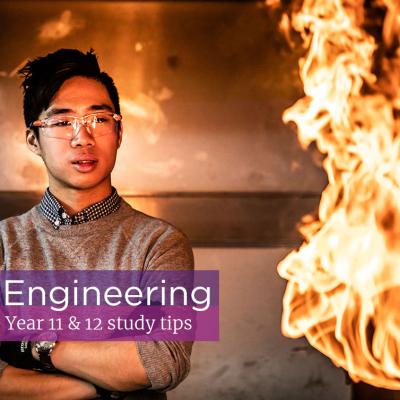Considering studying civil engineering at university? You may have lots of questions. We're here to help you find answers.
- Why study civil engineering?
- Is civil engineering hard to study?
- What does a day in the life of a civil engineering student look like?
- What jobs can you get with a civil engineering degree?
- Is a civil engineering degree worth it?
We've interviewed a UQ student and academic to find out. Caitlin is a civil engineering student and Dr Joe Gattas is an Associate Professor in UQ's School of Civil Engineering. They’ve teamed up to answer some of your questions and uncover how UQ can give you the skills you need to face the future, even when you don't know exactly what the future will look like.
Let's find out if civil engineering sounds like the study area for you.
Since this article's original publish date in July 2020, Caitlin has graduated and secured employment as a Sustainability Engineer at Aurecon, where she works on achieving sustainability ratings for buildings and infrastructure through innovation and industry best practice.
What have you learnt about yourself since you began your studies at UQ?
Caitlin: That I have a real passion for civil engineering. I found that it's super interesting, and how to learn, how to study and how to continually keep growing what you know.
How do you prepare students for the future when we don't know what the future looks like?
Joe: We really try to give students a broad skill set that they can constantly adapt to whatever circumstances they find themselves in. It's not just an uncertain future, but the careers that our students go into are so diverse that when you're studying, you don't actually know really what type of job you might end up in.
So for us, having a student that can adapt what they know and understand how to apply it to different circumstances – that's really important.
What's the most interesting thing you've learnt that's not part of your coursework?
Caitlin: I've learned a lot of soft skills that are required for engineering. I've been able to practise speaking to people through doing presentations at uni, and I’ve learned how to communicate in a team and work together.
What is it about UQ's approach the makes us the most employable graduates in the state?
Joe: Our curriculum is really driven by partnerships that we have with industry across Queensland, across Australia and across the world. Through our industry partners, we're constantly getting information on what skills are needed at the graduate level and what skills are needed in 5 or 10 years’ time with the direction that the industry is heading.
This allows us to constantly evolve our programs to ensure that our students are graduating with the most relevant skills that will allow them to be as broadly employable as possible when they step out the door.
As part of that, though, of course your education doesn't finish when you leave the university, and we still have really close connections to our students who graduated from 2 years to 10 years ago. These kinds of people who we try to connect with and who connect with us contribute to that feedback loop of making sure that we're always at the front of where industry is headed.
"Having that strong alumni connection with our recent graduates and our past graduates is really essential to driving forward the whole profession and driving forward the program that we offer at UQ."
What are the most valuable skills you've learnt as part of your degree?
Caitlin: I think the most valuable skills I've learned are not the technical skills that we all think are the most important when we graduate. As well as those soft skills I've mentioned previously, I've also learned how to network and communicate effectively, in general.

What opportunities do students have to get hands-on experience in our industry?
Joe: As part of the Engineering degree we have a professional training requirement, so all of our students will be exposed to some level of industry practice and experience.
"Within most of our courses we also have really hands on lab-prac experiences which could be anything from site visits to fabricating concrete, getting down to wave rooms and getting out in the field for environmental monitoring."
There's a huge emphasis on trying to tie your classroom learning to the physical structures that we're trying to model – whether that's a timber building or a tidal energy source.
How does the way you learn at UQ give you the skills you need to face an unknown future?
Caitlin: I think the most important thing that we've learned is getting a really good understanding of the base of the knowledge and then expanding from there.
They talk about how we're just trying to build a building, but so much about how you build a building is about the people that are inside it. So it's looking at how we can optimise buildings for the experience of the people inside.
Joe: Yeah, and it's not just the buildings but everything about our cities and the environment around us. Civil engineers are kind of expected to have an impact on transport networks, our waterways, our ecosystem and our energy. Civil engineers increasingly have a responsibility to ensure that our cities – which are huge consumers of all of those resources – are able to sustainably operate.
What makes a good student, and are they the same things that make a good job candidate?
Joe: The types of students that I really enjoy working with are those that are curious. You'll teach them something and they'll ask questions that you never heard before, even though I've been teaching that course for the last 5 years. That curiosity has two real benefits.
Firstly, they make the most out of their time at university. They're constantly looking for opportunities that may be available to them to get more experience, or to learn new things.
The second thing is when people come to university, they don't know what types of jobs are available to them, so the students that we've seen have really successful careers are students who accidentally discovered a pathway they didn't know existed. They've ended up somewhere that they weren't expecting and the curiosity led them there. It's certainly also an attribute that industry is looking for, from the graduates coming in.
What does a day in the life of a civil engineering student look like?
Caitlin: I would have lectures and tutes, but I've been doing thesis testing at the moment, so that's down in the lab, where we are testing different materials, which is very interesting. You get to see all of your friends on campus and I'm involved in some societies, so we might have a meeting on campus to discuss events and things we've got coming up.
If you could give me one piece of advice that would set me a part as a job candidate, what would it be?
Joe: Speak to as many people as you can and practise that from the start of your degree all the way through.
Engineering is a difficult degree to explain to students when they first enter the university. It is so broad, between the specialisations, the majors, the minors and everything that's available to your study pathway. This is amplified when you start actually looking at jobs, careers, and pathways that you can take once you're out of university and employed.
"So the students that really set themselves apart are the ones that really work to understand what's available to them, what they don't know, and it starts with their education but it continues throughout their entire career."
Explore the Bachelor of Engineering (Honours) or discover what it's really like to study other programs at UQ.






